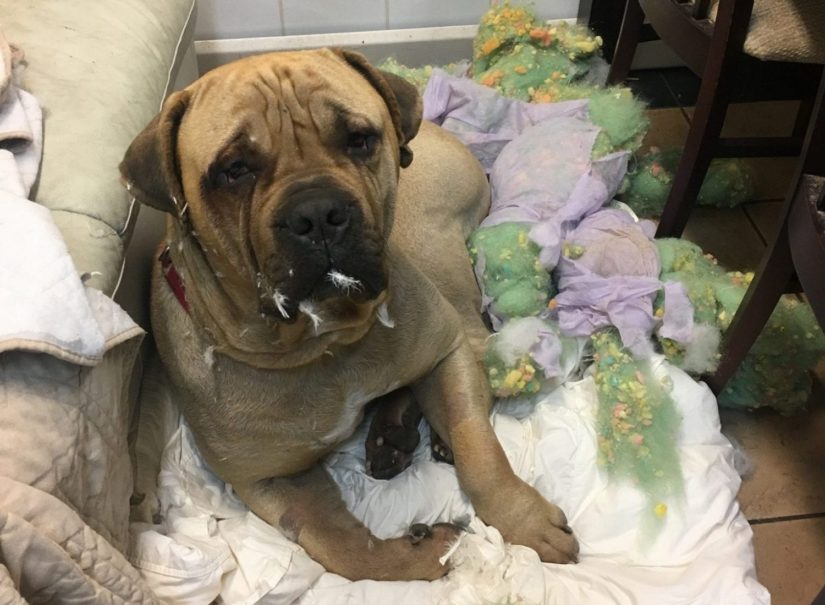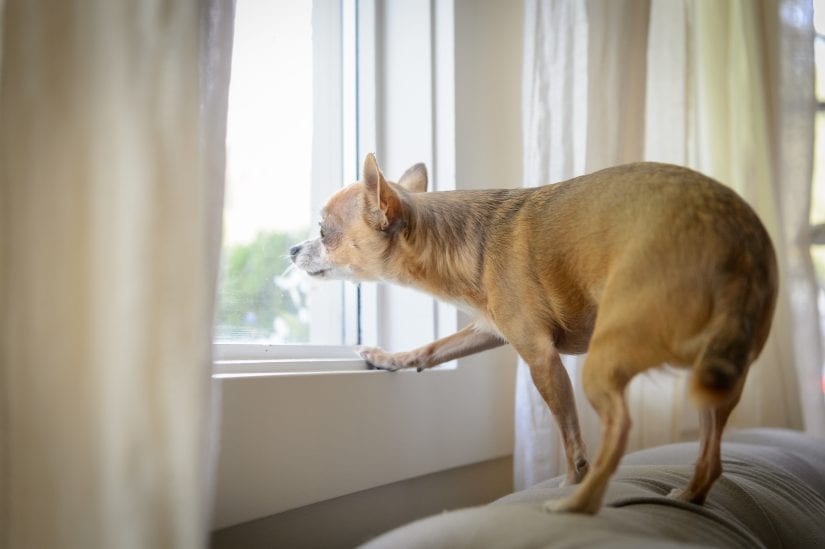Dogs form strong bonds with animals and people with whom they live. Most dogs can cope with separation from family members for a few hours. Some feel anxious, stressed, even panicked when left even for a few minutes.
Signs your dog may be suffering from separation anxiety
- Anxiety when you start to get ready to leave (panting, hiding, trembling, don’t want to eat)
- Damage to your front door, back door or windows (door you leave from)
- Injure themselves (bleeding paws, broken teeth, bleeding from mouth)
- Refuses to eat when you’re not home, even high value treats (eats them when you come home)

See your veterinarian if you suspect your dog is suffering from separation anxiety
Never punish your dog when she is anxious. She is not destroying things on purpose. Separation anxiety is a type of illness that is highly treatable with a combination of medication and behaviour modification (behaviour therapy). Your veterinarian can help determine whether your dog has separation anxiety or another condition.
Training options
- Take your dog to work if possible
- Walk him frequently and have water available in a spill-proof bowl
- Leave him with a sitter or at doggie daycare
- Have someone stay at home with the dog
Learn more about how you can deal with Separation anxiety – Preventing and reducing dog anxiety when alone (PDF).

